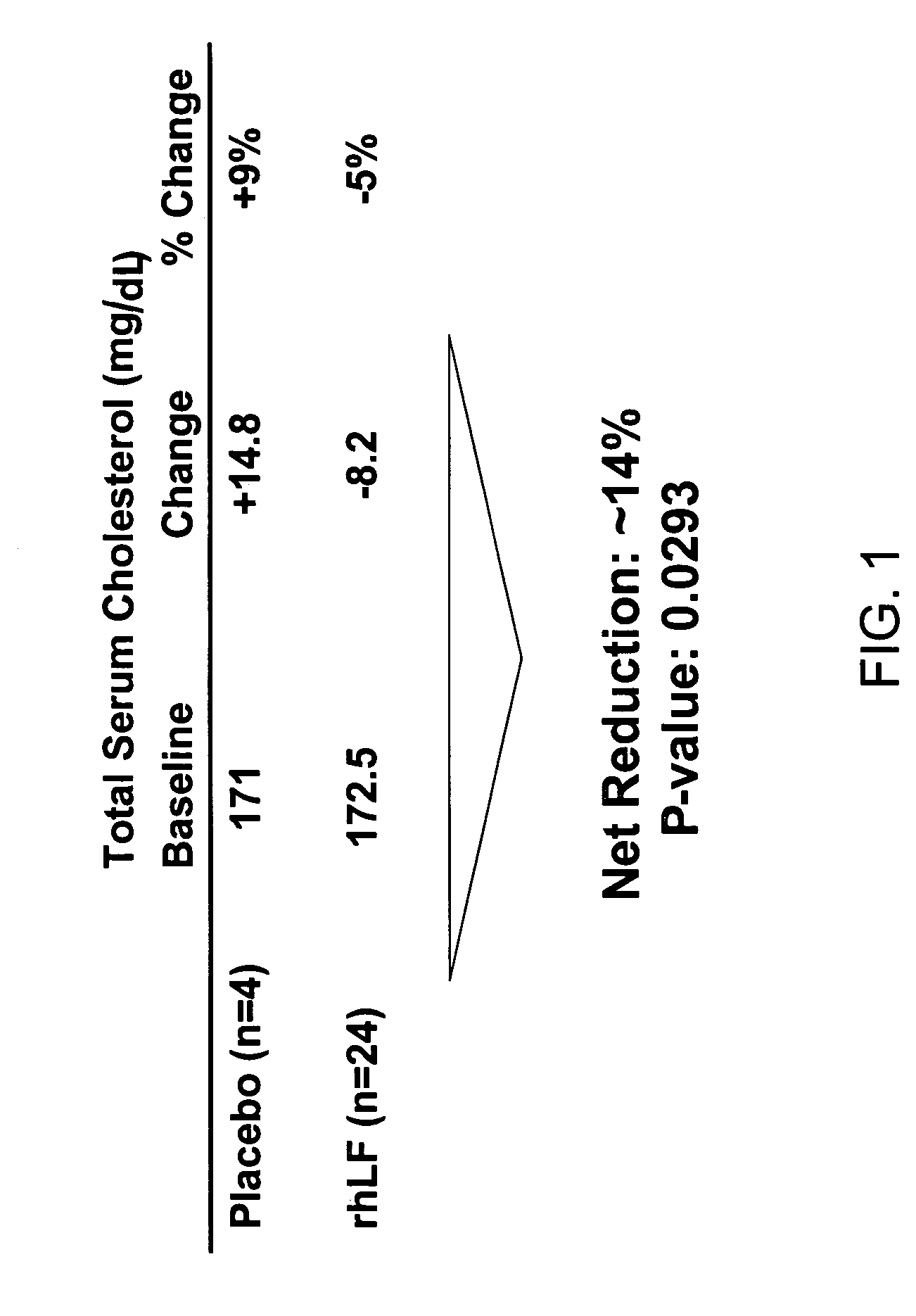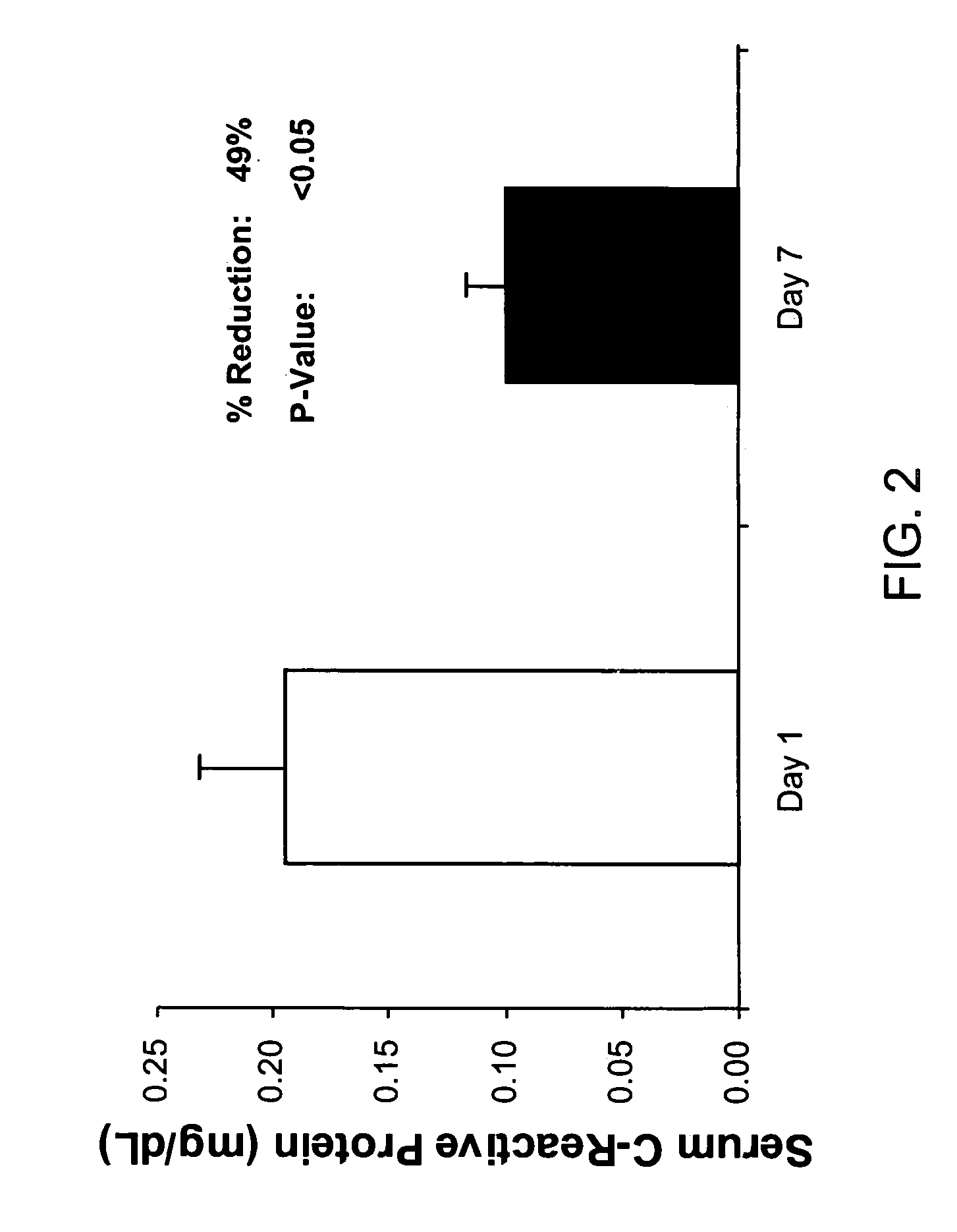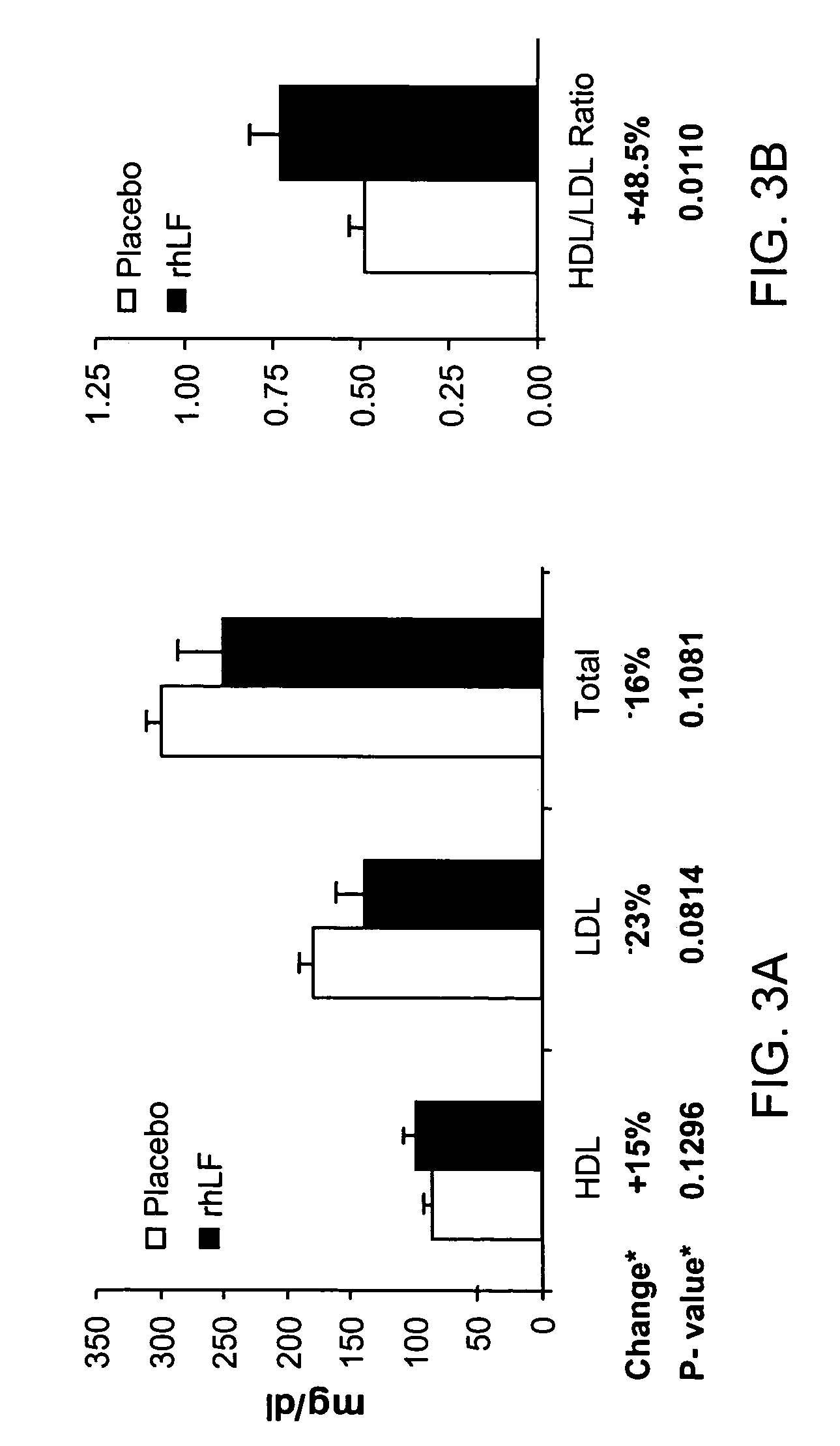Lactoferrin in the reduction of circulating cholesterol, vascular inflammation, atherosclerosis and cardiovascular disease
a technology of circulating cholesterol and lactoferrin, which is applied in the direction of transferrins, drug compositions, metabolic disorders, etc., can solve the problems of insufficient diet changes alone to reduce high cholesterol, atherosclerosis and eventually heart attack, and generalized vascular damage, so as to reduce total cholesterol and ldl cholesterol. , the effect of reducing the total cholesterol and ldl cholesterol
- Summary
- Abstract
- Description
- Claims
- Application Information
AI Technical Summary
Benefits of technology
Problems solved by technology
Method used
Image
Examples
example 1
Cholesterol Reduction by Recombinant Human Lactoferrin (rhLF)
[0116]Healthy adult human volunteers were administered a liquid formulation of either rhLF or placebo for seven days. Fasting serum was collected at baseline (prior to administration of rhLF) and at the end of study (Day 10) and levels of total cholesterol determined. All subjects were housed in an in-patient setting for the duration of the study and received similar diets.
[0117]In this clinical trial, human subjects treated with placebo drug experienced a rise in serum cholesterol. RhLF treated subjects in a similar setting and receiving a similar diet, experienced a reduction in total cholesterol. FIG. 1 shows that administration of rhLF for just seven days resulted in 14% reduction in total cholesterol (P<0.05).
example 2
Reduction of C-Reactive Protein (CRP) by Recombinant Human Lactoferrin (rhLF)
[0118]Healthy adult human volunteers were administered a liquid formulation of rhLF or placebo for seven days. RhLF was administered for a total of seven days. Serum was collected on Day 1 and Day 7 of rhLF administration and assayed for CRP using a high sensitive assay.
[0119]A total of six subjects had Day 1 CRP levels that were measurable by the high sensitive assay (>0.07 mg / dL). Five out of the six subjects showed a reduction in CRP with the sixth patient showing no change. As shown in FIG. 2, the six evaluable subjects showed an average of 49% reduction in CRP levels (P<0.05) as well as a 17% reduction in their cardiovascular risk.
example 3
RhLF Effect on Hyperlipidemia in Mice
[0120]The effect of oral rhLF was tested in a mouse model of hyperlipidemia induced by the mice being fed a high cholesterol-fat diet for 14 days (2 g lard, 8 g coconut oil, 1 g cholesterol, 0.3 g cholic acid per 100 g of feed and 88.7 g standard chow). The hyperlipidemic mice were administered either placebo vehicle or rhLF (1000 mg / kg) twice a day for seven days. Twenty-four hours after the last dose, serum was obtained from individual fasting animals and assayed for total cholesterol, HDL and LDL. The rhLF treated mice showed a trend toward decrease in total cholesterol (16%) and LDL cholesterol (23%) and an increase in HDL cholesterol (15%). The HDL / LDL ratio was increased by 48.5% and was statistically significant (FIG. 3).
PUM
| Property | Measurement | Unit |
|---|---|---|
| Mass | aaaaa | aaaaa |
| Mass | aaaaa | aaaaa |
| Mass flow rate | aaaaa | aaaaa |
Abstract
Description
Claims
Application Information
 Login to View More
Login to View More - R&D
- Intellectual Property
- Life Sciences
- Materials
- Tech Scout
- Unparalleled Data Quality
- Higher Quality Content
- 60% Fewer Hallucinations
Browse by: Latest US Patents, China's latest patents, Technical Efficacy Thesaurus, Application Domain, Technology Topic, Popular Technical Reports.
© 2025 PatSnap. All rights reserved.Legal|Privacy policy|Modern Slavery Act Transparency Statement|Sitemap|About US| Contact US: help@patsnap.com



